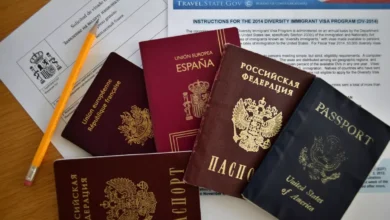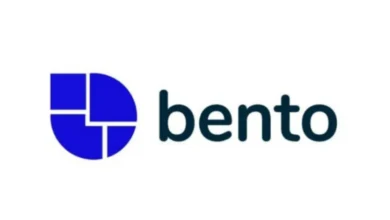Health Insurance Plans for Nigerians (2025 Guide)
Health care is one of the most important needs for every family. In Nigeria, many people still pay out-of-pocket when they go to the hospital, which can be very expensive. To reduce the burden of medical bills, health insurance is becoming more popular.
This article will explain health insurance plans for Nigerians — how they work, types of plans available, government and private options, benefits, and how to choose the right one for yourself or your family.
What is Health Insurance?
Health insurance is a system where you pay a regular fee (called a premium) to a health insurance company or scheme. In return, the insurance covers some or all of your medical expenses when you fall sick, have an accident, or need medical care.
Instead of paying huge bills at once, you spread the cost over time. This makes health care more affordable and accessible.
Why Health Insurance is Important in Nigeria
-
Rising cost of healthcare – Hospital bills, drugs, and surgery are expensive in Nigeria.
-
Emergency protection – Health issues come without warning. Insurance reduces financial stress in emergencies.
-
Access to better hospitals – Many health plans partner with good hospitals across the country.
-
Family coverage – Plans can cover you, your spouse, and children.
-
Peace of mind – Knowing your health bills are covered gives you security.
Types of Health Insurance Plans in Nigeria
There are two major categories of health insurance in Nigeria:
1. Public Health Insurance (Government Schemes)
The National Health Insurance Authority (NHIA), formerly known as NHIS, is the government body that runs national health insurance in Nigeria.
-
It provides affordable health insurance for civil servants, workers in the formal sector, and more recently, informal sector workers.
-
NHIA plans cover basic services such as consultations, drugs, maternity care, surgeries, and emergencies.
-
Premiums are usually lower than private insurance, but coverage may be limited depending on the plan.
2. Private Health Insurance
Private companies, known as Health Maintenance Organizations (HMOs), provide a variety of health insurance plans.
Popular HMOs in Nigeria include:
-
AXA Mansard Health
-
Hygeia HMO
-
Reliance HMO
-
Leadway Health
-
Avon HMO
Private HMOs offer different packages for individuals, families, and corporate organizations. These plans usually provide wider hospital networks and more flexible options than government schemes.
Categories of Health Insurance Plans in Nigeria
1. Individual Plans
-
Designed for one person only.
-
Covers hospital visits, tests, and treatment for the insured person.
-
Suitable for young professionals, students, or single adults.
2. Family Plans
-
Covers the principal member, spouse, and children.
-
Helps families save money compared to paying hospital bills individually.
-
Common for married couples with kids.
3. Corporate or Group Plans
-
Offered by companies for their employees.
-
Helps employers provide health benefits to staff.
-
Reduces absenteeism because employees get quick access to healthcare.
4. Senior Citizen Plans
-
Specially designed for older people above 60.
-
Covers age-related illnesses, check-ups, and long-term care.
What Do Health Insurance Plans Cover?
Coverage depends on the insurance company and package chosen, but most plans in Nigeria include:
-
Consultations and diagnosis
-
Drugs and prescriptions
-
Laboratory tests and X-rays
-
Maternity and child care
-
Surgeries (minor and sometimes major)
-
Emergency care
-
Hospital admission
-
Specialist care
Some higher-tier plans may also cover:
-
Dental care
-
Eye care
-
Chronic illness management (like diabetes or hypertension)
-
Overseas treatment (for premium plans)
Cost of Health Insurance in Nigeria
The cost of health insurance in Nigeria depends on:
-
The HMO provider
-
The type of plan (individual, family, corporate)
-
The level of coverage (basic, standard, or premium)
Examples (average range in 2025):
-
Individual plans: ₦15,000 – ₦60,000 per year
-
Family plans: ₦60,000 – ₦250,000 per year (depending on family size)
-
Corporate plans: Negotiated by companies with HMOs
Some HMOs also allow monthly payments (₦3,000 – ₦10,000 per month) to make it more affordable.
Benefits of Having Health Insurance
-
Financial protection – Reduces or eliminates the stress of paying high medical bills.
-
Access to quality hospitals – HMOs partner with good hospitals in many states.
-
Preventive care – Regular check-ups and early diagnosis.
-
Better health outcomes – People with insurance tend to visit hospitals early instead of delaying treatment.
-
Affordable payment options – Instead of one-time heavy bills, you pay small amounts monthly or yearly.
Challenges of Health Insurance in Nigeria
Even though health insurance is growing in Nigeria, there are still some challenges:
-
Low awareness – Many Nigerians do not know how insurance works.
-
Trust issues – Some people fear that HMOs will not deliver quality service.
-
Limited coverage – Basic plans may not cover some expensive treatments.
-
Poor regulation – Some hospitals provide lower service to HMO patients.
How to Choose the Best Health Insurance Plan in Nigeria
When selecting a health insurance plan, consider:
-
Your health needs – Do you need a basic plan or something more comprehensive?
-
Budget – Choose a plan you can afford consistently.
-
Hospital network – Check if your preferred hospitals are part of the HMO’s list.
-
Customer service – Look for HMOs with good support and quick response.
-
Reviews and reputation – Ask friends, family, or check online for feedback about the HMO.
Steps to Get Health Insurance in Nigeria
-
Research available HMOs or NHIA plans.
-
Compare the packages and benefits.
-
Fill out an application form (online or offline).
-
Provide necessary documents (ID, passport photo, details of family members if needed).
-
Pay your premium (monthly or yearly).
-
Receive your insurance card and list of partner hospitals.
-
Start using the service when you need healthcare.
Future of Health Insurance in Nigeria
With Nigeria’s growing population and rising healthcare costs, health insurance is becoming more important. The government is working to make NHIA coverage compulsory for all citizens, while private HMOs are offering more flexible and affordable packages.
Technology is also making insurance easier — with mobile apps and online payments, more Nigerians can now access health plans without stress.
Frequently Asked Questions (FAQ)
1. Is health insurance compulsory in Nigeria?
Yes, the National Health Insurance Authority (NHIA) is working to make health insurance mandatory for all Nigerians, but implementation is still ongoing.
2. Can I pay monthly for health insurance?
Yes, many HMOs allow monthly payments, especially for individuals and families.
3. Which is better, NHIA or private HMO?
NHIA is cheaper but has limited coverage. Private HMOs offer more options but cost more.
4. Does health insurance cover all diseases?
No, coverage depends on your plan. Some serious conditions may require higher packages.
5. Can I use my insurance in any hospital?
No, you can only use hospitals that are part of your HMO’s partner list.
Final Thoughts
Health insurance is no longer a luxury in Nigeria — it is a necessity. With the high cost of healthcare, having a plan protects you and your family from unexpected medical expenses.
Whether you choose the government’s NHIA plan or a private HMO, make sure you select a package that fits your health needs and budget. By joining a health insurance plan, you are not only saving money but also ensuring better access to quality healthcare in Nigeria.



